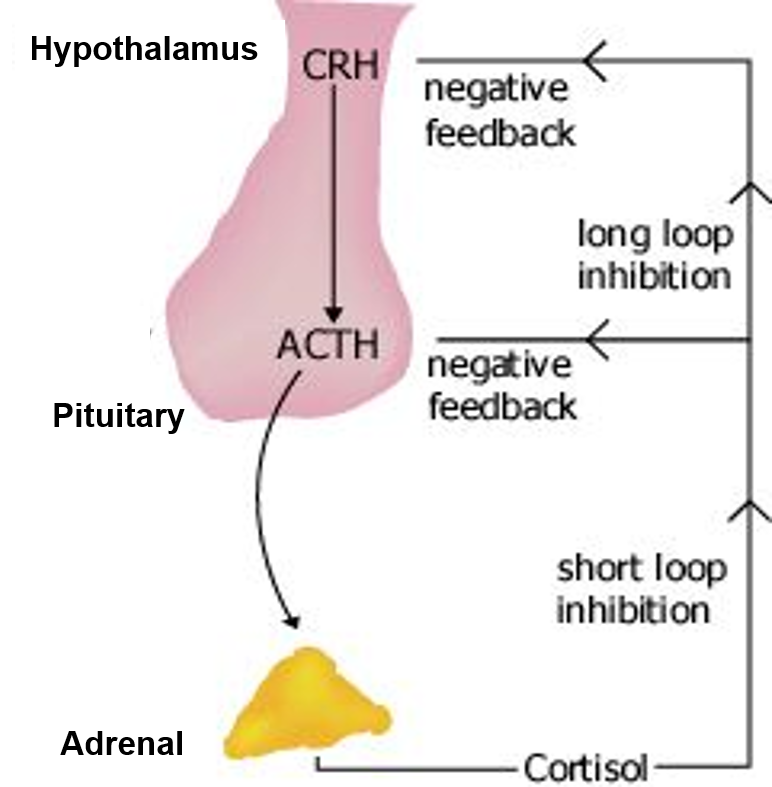Adrenocorticotrophin; Corticotropin

Corticotrophin-releasing hormone from the hypothalamus acts on the pituitary (inset), which secretes ACTH. ACTH travels to the adrenal glands via the bloodstream (arrow). Cortisol from the adrenal then feeds back to the hypothalamus to shut down the cycle.
Adrenocorticotropic hormone is made in the corticotroph cells of the anterior pituitary gland. It is secreted in several intermittent pulses during the day into the bloodstream and transported around the body. Like cortisol, levels of adrenocorticotropic hormone are generally high in the morning when we wake up and fall throughout the day and lowest during sleep. This is called a diurnal (circadian) rhythm. Once adrenocorticotropic hormone reaches the adrenal glands, it binds on to receptors causing the adrenal glands to secrete more cortisol, resulting in higher levels of cortisol in the blood. It also increases production of the chemical compounds that trigger an increase in other hormones such as adrenaline and noradrenaline.
Secretion of adrenocorticotropic hormone is controlled by three inter-communicating regions of the body, the hypothalamus, the pituitary gland and the adrenal glands. This is called the hypothalamic–pituitary–adrenal (HPA) axis. When cortisol levels in the blood are low, a group of cells in the hypothalamus release a hormone called corticotrophin-releasing hormone (CRH) which stimulates the pituitary gland to secrete adrenocorticotropic hormone into the bloodstream. High levels of adrenocorticotropic hormone are detected by the adrenal gland receptors which stimulate the secretion of cortisol, causing blood levels of cortisol to rise. As the cortisol levels rise, they start to slow down the release of corticotrophin-releasing hormone from the hypothalamus (long loop inhibition) and adrenocorticotropic hormone from the pituitary gland (short loop inhibition). As a result, the adrenocorticotropic hormone levels start to fall and consequently cortisol. This is called a negative feedback loop.
Stress, both physical and psychological, also stimulates adrenocorticotropic hormone production and hence increases cortisol levels.
The effects of too much adrenocorticotropic hormone are mainly due to the increase in cortisol levels. Higher than normal levels of adrenocorticotropic hormone may be due to:
Lower than normal levels of adrenocorticotropic hormone may be due to:
Too little adrenocorticotropic hormone could lead to a poorly functioning adrenal gland due to insufficient production of cortisol.
Last reviewed: Mar 2019